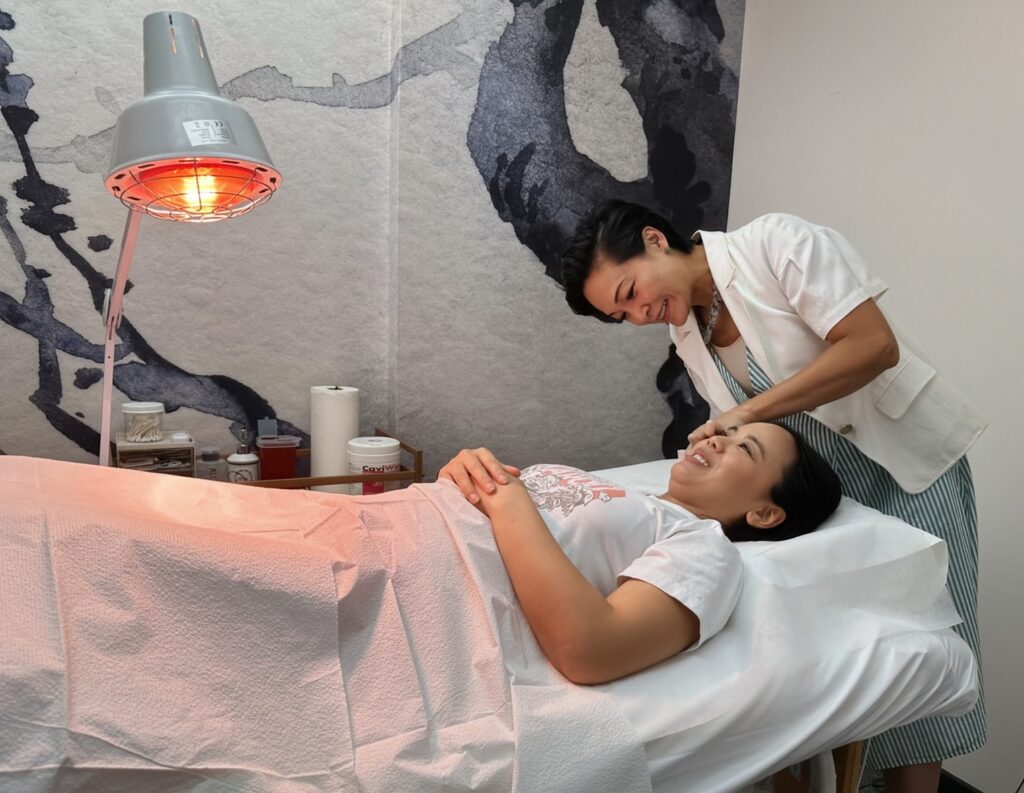Acupuncture for Stress and Anxiety Relief in Salt Lake City
Restore emotional balance, relieve anxiety, and reset your nervous system naturally and safely with holistic acupuncture.

Results Our Acupuncture Patients Experience
Stress doesn’t just live in your mind. It shows up in your body—through poor sleep, digestive issues, irritability, fatigue, or an anxious, racing heart.
At Contemporary Acupuncture and Herbs, we treat emotional health the way it should be: as a full-body experience, rooted in balance and nervous system support. Our holistic treatments are designed to calm your system, reset your energy, and help you find deep relief.
“Claire has been working with me to address several ailments: GI issues, anxiety, and headaches primarily. As a mental health therapist… I’m very impressed by the impact of this treatment. After a couple of months, I feel markedly better, and after every session, I can tell I’m trending toward greater wellness. Every treatment is filled with support, kindness, and deep relaxation. I couldn’t imagine going anywhere else.”
Heather H.
How Acupuncture Supports Mental and Emotional Wellness
Chronic stress keeps your body in a constant state of low-grade tension—activating the “fight or flight” response even when you’re at rest. This can leave you feeling wired, overwhelmed, and emotionally drained.
Acupuncture helps your nervous system shift into “rest and restore” mode, so your mind and body can finally exhale.
Here’s how it works:

Calms the overactive nervous system and lowers cortisol

Regulates mood, energy, and sleep patterns
Increases circulation to the brain and body
Promotes the release of natural mood enhancers like serotonin and dopamine

Stress-induced digestive issues (like IBS, bloating, or nausea)
A 2017 review from the Acupuncture Evidence Project found that acupuncture significantly reduced anxiety symptoms in over 400 patients compared to standard treatments. Another study of 120 participants found that acupuncture reduced symptoms twice as effectively as medication and talk therapy—without side effects.
Who Is This For?
Our stress and anxiety care is ideal for individuals experiencing:
- Generalized anxiety, panic attacks, or restlessness
- Burnout, chronic overwhelm, or emotional exhaustion
- Mood swings, irritability, or mental fog
- Insomnia or racing thoughts
- ADHD
- Stress-induced digestion issues (like IBS, bloating, or nausea)
- Nervous system dysregulation after illness or trauma
- Grief, emotional numbness, or difficulty feeling grounded
- Unexplained psychological distress
Why Patients Choose Us
We don’t just treat symptoms—we get to the root. Modern medicine often masks symptoms with medication. We take a holistic approach—evaluating the whole person, reducing symptoms, and helping the body and mind build lasting resilience.
Here’s how our approach is different:
30+ years of clinical experience in Chinese medicine

Calming, custom treatment plans for stress, anxiety, and burnout

Optional herbal medicine for deeper and more complete support
Needle-free options available for highly sensitive patients

Deeply restorative sessions and truly compassionate care
Instead of masking symptoms with medication, our goal is to help your body adapt, reset, and build genuine emotional resilience.
What to Expect During Your First Visit

We listen.
You’ll have a private consultation where we explore how stress is showing up in your life and body.

We personalize.
Your care plan will be customized to your nervous system, energy, and emotional needs—whether you’re seeking better sleep, improved focus, or reduced anxiety.

You relax.
Most clients feel a deep sense of calm and lightness after their first visit—often for the first time in years.
More Patient Success Stories
“I cannot express how positively transformative my sessions have been. The soothing music, calming scents, and comfortable environment made each session a true retreat from the stresses of daily life. I noticed positive changes in my overall well-being after just a few sessions… and I felt a renewed sense of balance and vitality. The combination of expertise, personalized care, and a soothing environment creates a truly positive and enriching healing experience.”
Luz L.
“I’ve been dealing with anxiety and depression problems… to the point where it would keep me from doing regular things, living a regular life. That’s when I came across Claire’s practice. It has literally changed my life. The anxiety and depression levels have dropped substantially, and I can say I’m getting back to my regular self after so many years. Claire is very professional and very knowledgeable.”
Marcio R.
Find Your Calm—Naturally
You don’t need to push through another day feeling on edge. With acupuncture and holistic support, your nervous system can heal—and you can return to the calm, clear version of yourself.
Let’s help your body and mind return to balance.
